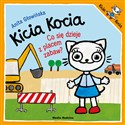Kategorie
- Promocja!
- Albumy
- Sztuka i fotografia
- Audiobooki
- Biografie
- Kalendarze
- Komiksy
- Kryminały
- Ezoteryka
- Bajka i baśń
- Beletrystyka
- Zdrowie i uroda
- Historyczne
- Hobby
- Horror, literatura grozy
- Poradniki
- Ikonografia
- Książki kucharskie i diety
- Słowniki językowe
- Legendy, podania, mity
- Literatura erotyczna
- Literatura
- Mapy i przewodniki
- Wojskowość i wojny
- Filmy
- Muzyka
- Nauki Przyrodnicze
- Literatura faktu
- Nuty i śpiewniki
- Ksiązki dla dzieci
- Ksiązki dla młodzieży
- Książki kucharskie
- Popularno-naukowe
- Religia i wiara
- Romanse
- Wydawnictwa naukowe i popularno-naukowe
- Nauka i Naukowcy
- Science-fiction
- Nauki Społeczne
- Fantastyka
- Sport
- Technika
- Podręczniki szkolne
- Sensacyjne i thrillery
- Zestawy. Torby. Plecaki. Tornistry. Worki
Newsletter
Bestsellers
| |
| |
| |
| |
| |
| |
| |
| |
| |
| |
| |
| |
| |
| |
| |
| |
| |
Polish Bookstore »
Wydawnictwa naukowe i popularno-naukowe
»
Food Systems in an Unequal World Pesticides, Vegetebles and Agrarian Capitalism in Costa Rica
Tip: Type the quantity (default is 1) and click "Add to cart" button to order online.











Powered by nopCommerce
CI by Agnieszka Antowska
Copyright © 2024 The Polish Bookstore - Polish books - Polska ksiegarnia w USA & Canada. All rights reserved.


























